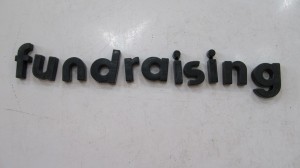 The access to GAP and DIEP procedures is not widespread, only a handful of surgeons have invested the time to learn this intensely specialized microsurgical procedure, and have access to another equally qualified micro-surgeon to provide the required surgical assistance.
The access to GAP and DIEP procedures is not widespread, only a handful of surgeons have invested the time to learn this intensely specialized microsurgical procedure, and have access to another equally qualified micro-surgeon to provide the required surgical assistance.
To give you an idea of how few of these surgical teams exist, in late 2007 we were one of only three practices in the country that offered simultaneous bilateral GAP reconstruction. As a result, we see patients from all over the United States seeking this highly successful option, with 30 to 40% of our patients referred to us as a result of repeatedly failed implant reconstructions.
In a critical analysis of 142 GAP procedures published by six physicians at LSU, the GAP procedure is reported as “not easy to learn; however, it does provide a reliable flap and an excellent aesthetic reconstruction.” The report further states “overall flap survival was 98%”and perhaps most importantly “patient satisfaction with the reconstructed breast and donor site has been excellent.”
A little bit about us:
Co-directors Dr. Richard M. Kline and Dr. James E. Craigie are certified by The American Board of Plastic Surgery. Both surgeons have trained under Dr. Robert J. Allen, a pioneer in breast reconstruction using the DIEP, SIEA, and GAP flaps. Dr. Craigie completed a microsurgical breast reconstruction fellowship dedicated to muscle sparing techniques (directed by Robert J. Allen, M.D.). Dr. Kline completed his residency at LSU while Dr. Allen was developing these techniques.
Our entire surgical team is dedicated to remaining at the forefront of breast reconstruction surgery to provide excellent care and results for each individual patient. Because of this commitment, the practice consistently earns referrals from our patients, as well as from other surgeons throughout the United States.
Knowing the right questions to ask:
When searching for a surgeon to perform your microsurgical breast reconstruction, it’s important to ask him or her the right questions. Below are a few questions to ask:
- Are you a microsurgeon? Where and by whom were you trained in this specialty?
- How many microsurgeries have you performed? And how often do you perform them?
- What is your success rate?
- Can you arrange for me to speak with some of your patients who have had the procedure I am seeking? (Candidates should speak with people of similar ages and lifestyles).
- How long do you anticipate I will be under anesthesia for the procedure?
- How many board certified physicians will be assisting with the first stage of the procedure? Will there be physicians in training (residents) involved with my surgery
- Will I have to sign a consent that if a physician is unable to complete the procedure, I will have to consent to a TRAM/Free TRAM?
Have a question about breast reconstruction or post-surgical care you’d like answered from our surgical team? Just ask us!














